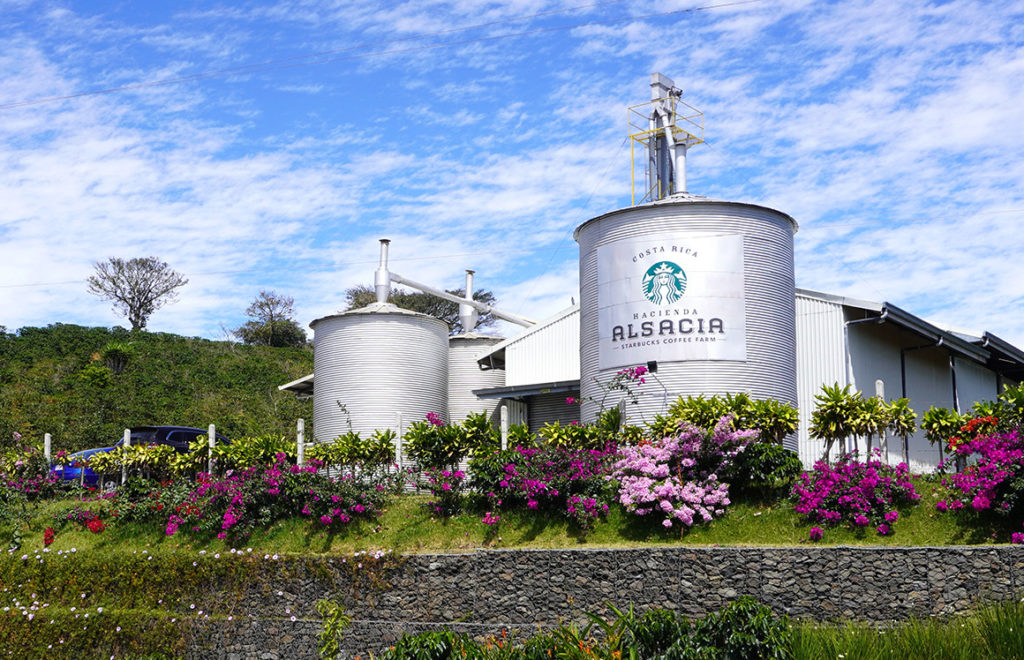 Costa Rica is home to the one-and-only Starbucks Coffee Farm, Hacienda Alsacia. It is a real working coffee farm, but its main purpose is as an agronomic and educational center. Starbucks has a set of farm support centers around the world that provide improved hybrid varieties plus production and environmental advice to small coffee farmers. Hacienda Alsacia is at the center of that.
Costa Rica is home to the one-and-only Starbucks Coffee Farm, Hacienda Alsacia. It is a real working coffee farm, but its main purpose is as an agronomic and educational center. Starbucks has a set of farm support centers around the world that provide improved hybrid varieties plus production and environmental advice to small coffee farmers. Hacienda Alsacia is at the center of that.
Interpreting a little: Starbucks seems to have decided that (a) it will benefit from upgrading coffee varieties and production methods among the thousands of small farmers it buys from and (b) as a business issue it wants to be able to label its coffee at 100% “ethically sourced”. To meet those goals it is working to educate the small farmers and to get them to meet the various “ethically sourced” guidelines, so the farms will meet certification standards. The farmers will get better prices if they meet the various quality, environmental and “ethical” requirements, so they do OK too.
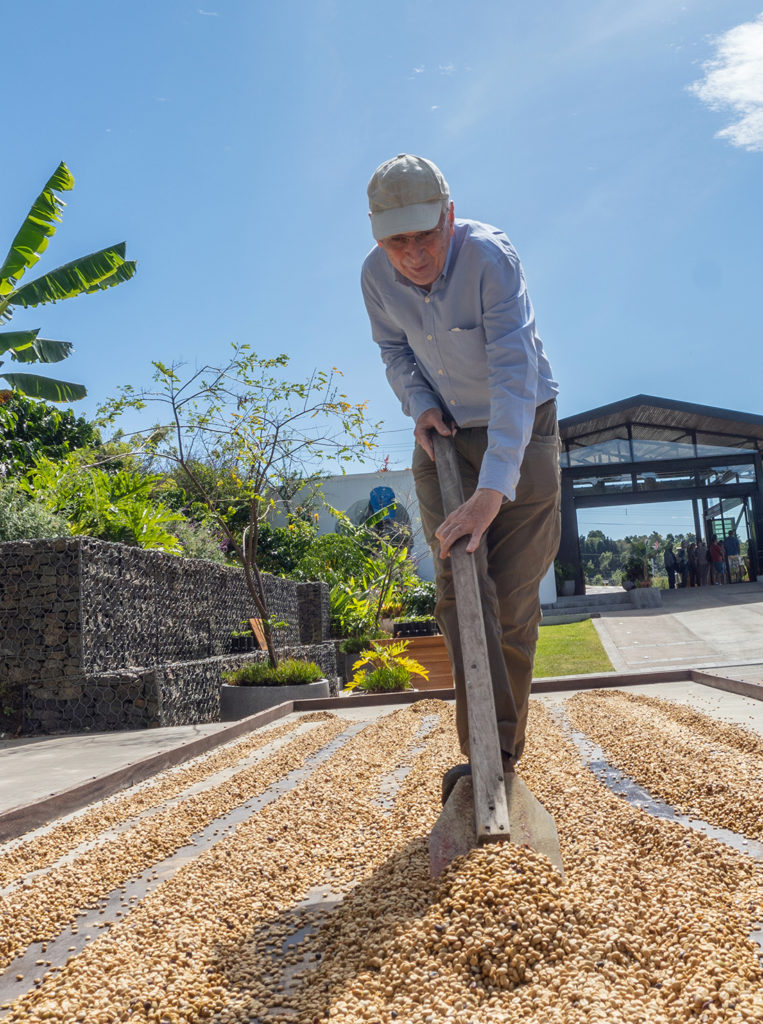 |
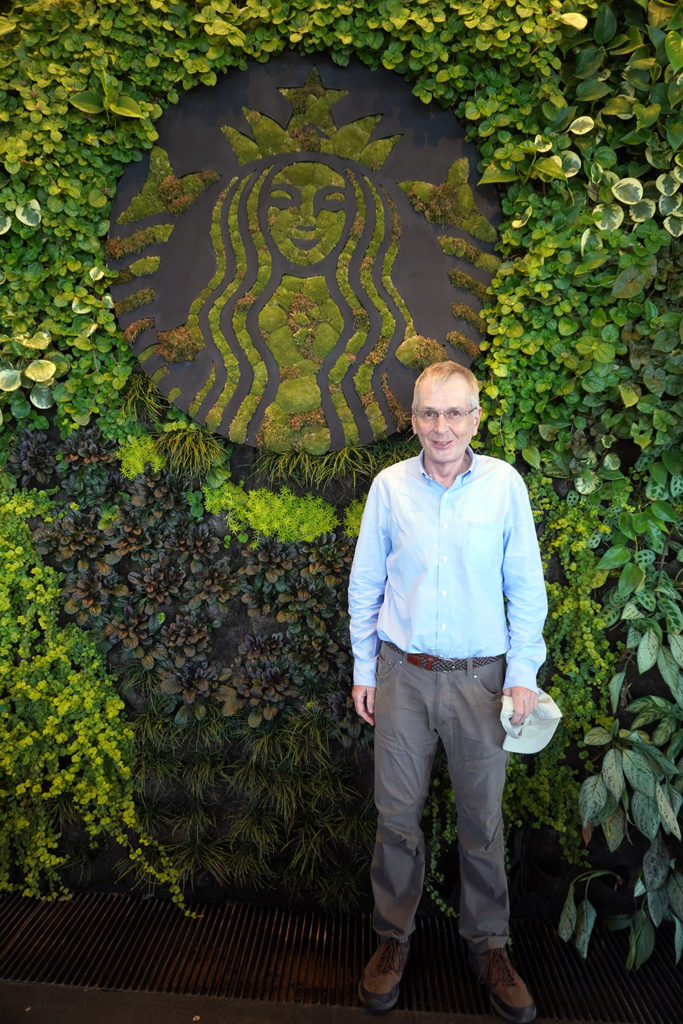 |
Note, however, that while the tour guide talked a lot about ethical production, this did not prevent him exploiting visiting tourists for purely nominal payment-in-kind. We got to plant seeds, harvest a few beans and rake drying beans. Then we got an elaborate how-to-drink-coffee-as-a-connoisseur session
I’ve been on a couple of coffee farm tours before and this was by far the best, both for activities and for information. Next time you’re in Costa Rica make sure to drop by.
I had visited the nearby Poas volcano just before, so I combined my two trips by visiting the Starbucks Farm Cafe and offering up a slice of Starbucks’ Carrot Cake to the Volcano God. After the god had consumed the essence of the sacrifice, I dutifully disposed of the physical remains. It was delicious.
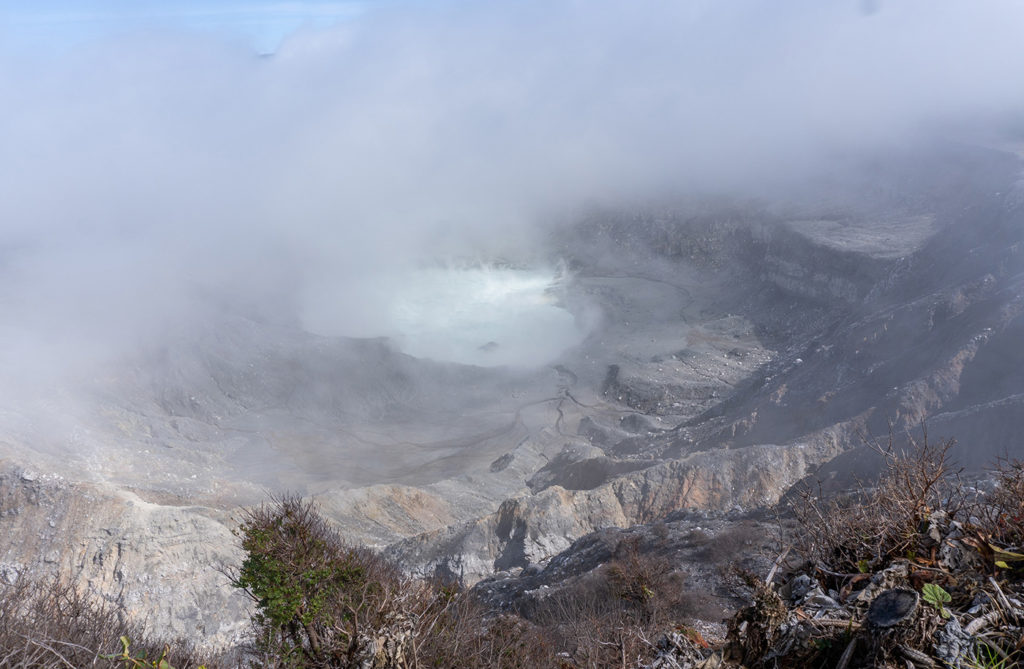 |
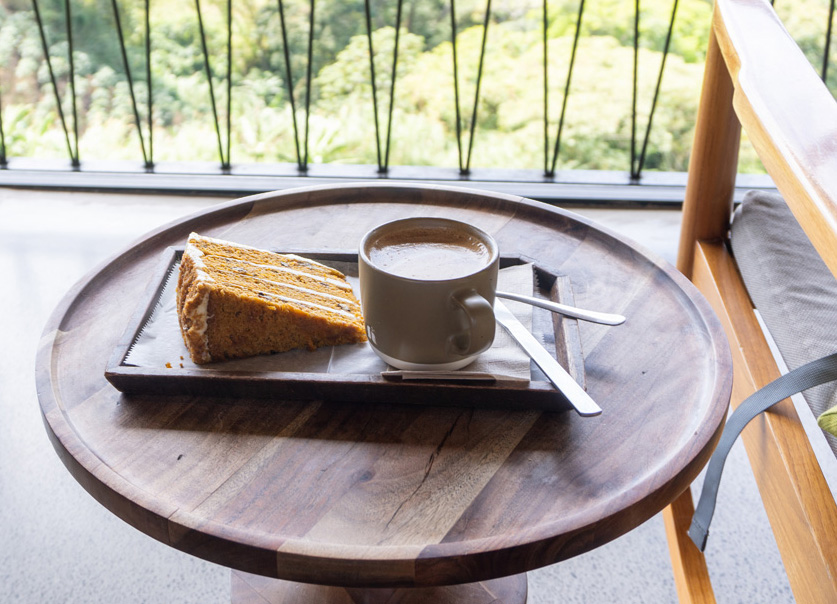 |